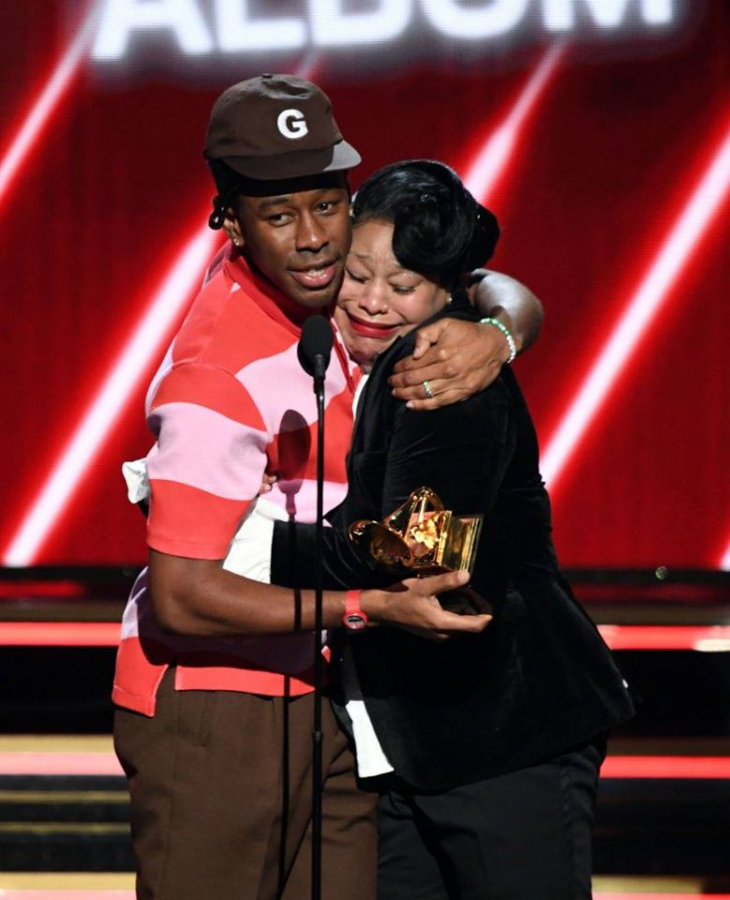“If You Open Your Mouth, You’re Gone,” Rampant Discrimination in the Grammys
Deborah Dugan made history. In 2019, she became the first woman to serve as President and Chief Executive Officer of the Recording Academy in the Grammys’ 62-year history. She succeeds Neil Portnow, who is known for making misogynistic comments about women in the music industry. In 2018, he said women needed to “step up” if they wanted recognition.
Dugan symbolized a more inclusive era of the Grammys. She told “Good Morning America” that her goal was to “make change from within.” Clearly, Dugan and the diversity task force created in 2018 had a ways to go to create a safer, more inclusive music industry.
Yet, this all came to an abrupt end on Jan. 16, 2020, only 10 days before the awards, which took place Jan. 26.
Dugan was placed on administrative leave after the Academy board of trustees hired investigators to look into “a formal allegation of misconduct by a senior female member of the Recording Academy team.”
Dugan filed a 44-page complaint with the Equal Employment Opportunity Commission (EEOC) in response. It asserts that the board filed these claims to retaliate against her for trying to right the wrongs of their “boys’ club.” The EEOC report also details corruption in the Academy. This includes sexual harassment in the workplace, vote rigging and favoritism within the nomination process.
Allies have supported Dugan to bolster the claims made in the report, primarily of the rampant sexism and racism ingrained in the institution.
Ty Stiklorius, John Legend’s manager and a member of the diversity task force, spoke about the complaint.
“[It exposes] an organization whose senior management was focused primarily on the benefits, financial and otherwise, of their longstanding privileged positions,” he said.
In detailing the “boys’ club mentality,” the report tells of how Dugan was sexually harassed by an industry lawyer. It also says how she learned that many of her predecessors, including Portnow, were accused of sexual misconduct and assault.
The former Chief Information Officer (CIO) Megan Clarke also experienced harassment from a male board member and suffered punishment for speaking out. The previous CIO told Clarke, “If you open your mouth, you’re gone.” After following up with human resources about the incident, she was forced to resign just as she had been warned.
The discrimination described by Dugan and Stiklorius is reinforced by the lack of transparency in the voting process. There is a pattern of excluding women and people of color from the “Big Four” Awards: Best New Artist, Record of the Year, Song of the Year and Album of the Year.
Twelve thousand members vote on submissions, and secret committees review the top 20 selections. Many committee members have relationships with nominees. The report claims that this allows the board to push forward the artists they know, rather than those who merit it.
The board can also add in artists who did not make the list. They are especially likely to do so if they have a business or personal relationship with the performer.
This corrupt system helps those with systemic advantages, such as white male privilege. As a result of privilege, they have better connections.
The University of Southern California Annenberg Inclusion Initiative found a large gender disparity in award winners. Of all the nominees from 2013-2020, only 11.7% were women. Of this percentage, 62% were white and 38% were women of color.
This report makes the routine snubbing of artists like Beyoncé less of a coincidence. Instead, it is evidence of systemic racism. Only 10 black artists have won Album of the Year since the show’s start in 1959. Only one rap album, OutKast’s “SpeakerBoxxx/The Love Below,” received the honor.
In 2017, Adele won over Beyoncé’s “Lemonade” for Album of the Year, to the upset of many. “Lemonade” was hailed both as a visual and lyrical masterpiece that empowered black women. Adele acknowledged this in her acceptance speech, saying that Beyoncé deserved the award.
Many black artists are siphoned off from the Big Four to the Hip-Hop/Rap, R&B and, more recently, Urban Contemporary categories. At the 2020 awards, Tyler, the Creator, who took home a gramophone for Best Rap Album, felt bittersweet about his win.
“On one side, I’m very grateful that what I made could just be acknowledged in a world like this,” he said. “But also it sucks that whenever we, and I mean guys that look like me, do anything that’s genre-bending, they always put it in a ‘rap’ or ‘urban’ category. I don’t like that ‘urban’ word. To me, it’s just a politically correct way to say the N-word. Why can’t we just be in pop?”
As P. Diddy pointed out at the Pre-Grammys gala, what Dugan brought to light with her complaint is nothing new. “So, right now, this current situation — it’s not a revelation. This thing’s been going on. And it’s not just going on in music, it’s going on in film, it’s going on in sports, it’s been going on around the world,” he said.
With many notable absences on Sunday, including Beyoncé, Jay-Z, Halsey and Taylor Swift, the discrimination in the Grammys, as with other institutions, is impossible to ignore. The diversity task force urges the Academy to install changes before they reconvene in 90 days. The world waits alongside them. The awards must reflect the diversity in music that it claims to celebrate.
As said by this year’s host Alicia Keys, “It’s a new decade. It’s time for newness and we refuse the negative energy. We refuse the old systems.”








































































































































































































